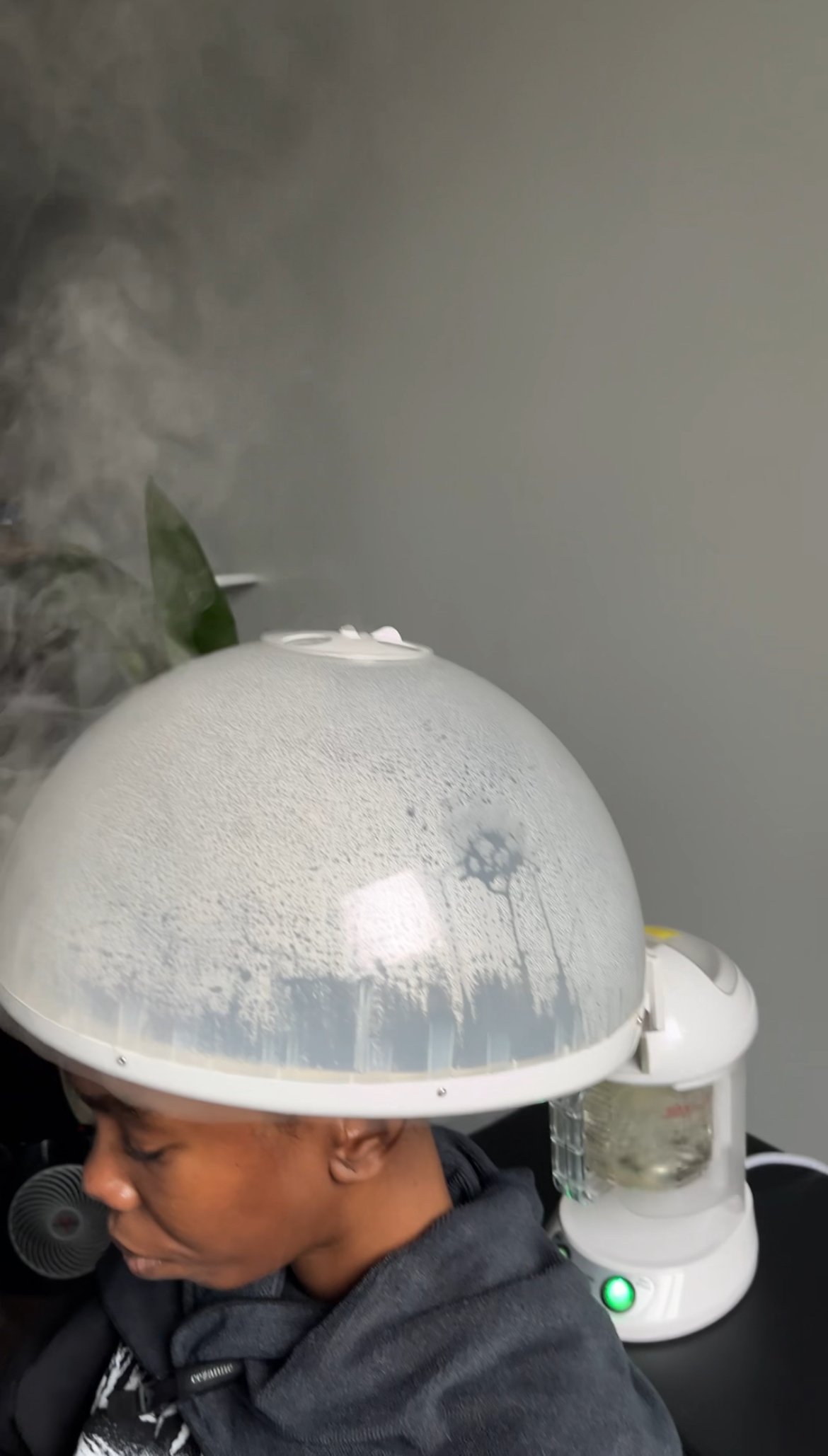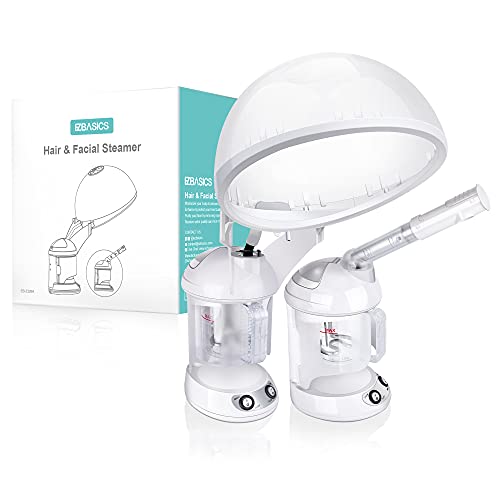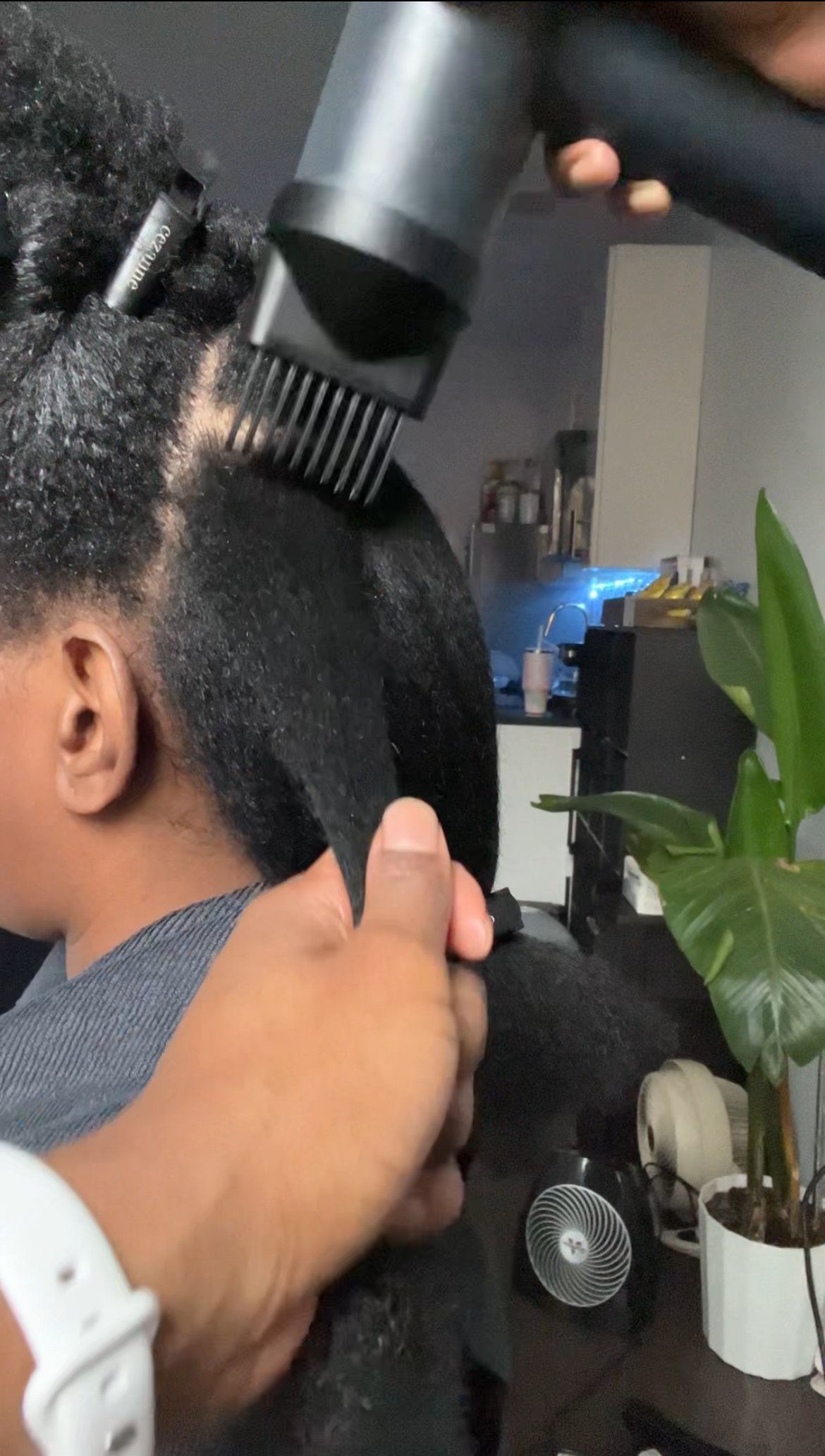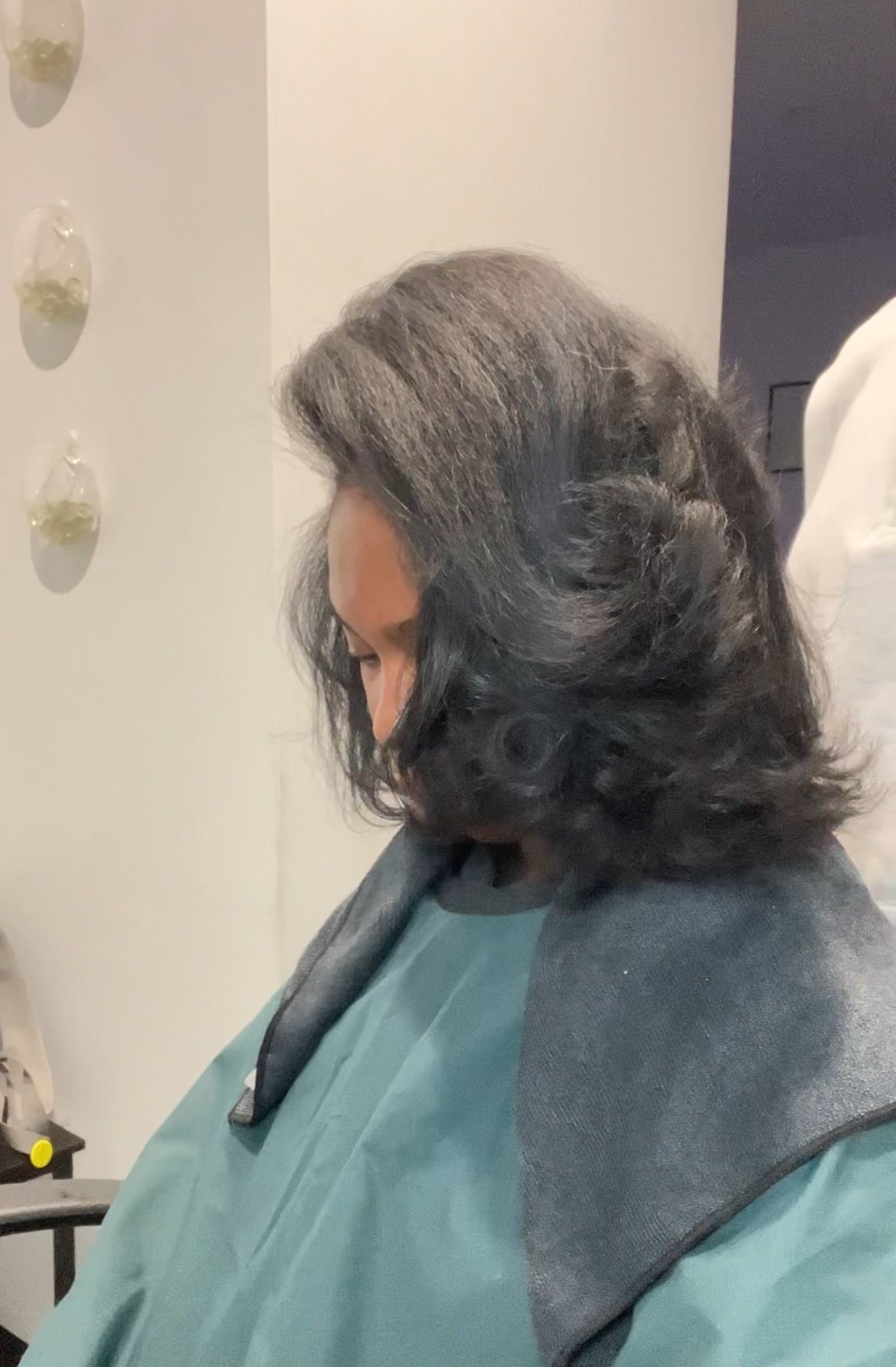The TRUTH About DIY Hair Products
Are DIY Hair Products Good?
*This post contains affiliate links*
Many curly haired individuals turn to DIY hair care, believing that homemade, all-natural products are the best option for their curls. But are they truly beneficial, or could they be causing more harm than good? Today, I’m working with a new client who has been exclusively using DIY hair products, and we’ll explore whether they are helping or hurting her curls.
DIY Products and Product Buildup
A common issue with DIY products is excessive buildup. Ingredients like shea butter, aloe vera, and oils often sit on the hair rather than absorbing into the strands. This can lead to dull, greasy hair over time. A simple way to check for buildup is to run your hand through your hair—if your palm looks shiny and greasy, you likely have excess product sitting on your strands.
I used the TimelesslyCurly Volume Shampoo to ensure all previous buildup was removed before styling.
One common DIY practice is using African black soap or baking soda as shampoo, but these alternatives often have an imbalanced pH. Hair thrives at a pH level of 4.5 to 5.5, while African black soap has a pH level between 8 and 10. This can leave hair overly dry and prone to breakage.
That’s why professionally formulated shampoos, like the Moisture Shampoo, are key for maintaining hydration and scalp health. It properly cleanses her hair without stripping its natural moisture.
Are DIY Deep Conditioners Effective?
Many people make DIY deep conditioners using ingredients like raw eggs, avocado, or mayonnaise. While these ingredients contain beneficial nutrients, their molecular size is often too large to penetrate the hair shaft effectively. Professionally formulated deep conditioners contain humectants and emulsifiers that allow the ingredients to absorb into the hair, delivering lasting moisture and strength.
I used the Deep Repair Treatment to restore hydration and strengthen her hair.
The Risks of Spoilage
I recall a time when I used a DIY leave-in conditioner that required weekly mixing and refrigeration. One major downside of DIY products is their short shelf life. Without preservatives, they can spoil quickly, leading to mold and bacterial growth.
To prep my client’s hair for blow-drying, I used the Emergency Miracle Treatment Leave-In Conditioner, which contains silk protein to repair and protect hair.
The Silk Press Process: Professional Products & Tools
After detoxing and treating my client’s hair, I proceeded with a silk press using salon-quality tools and products:
Blow Dry Prep: I applied Le Deux Blow Dry Cream, which contains magnesium to improve hair elasticity and prevent heat damage.
Heat Protection: I used Amethyst Oil, a multi-use oil that protects from heat, reduces frizz, and enhances shine.
Are DIY Products Convenient and Effective?
DIY hair care lacks consistency. If you’ve ever made flaxseed gel then you know, two batches rarely turn out the same. This inconsistency makes it difficult to achieve predictable results.
Additionally, some raw ingredients can cause unexpected sensitivities. For instance, my hair reacts poorly to raw coconut oil, leaving it brittle and stringy. Without proper formulation, DIY products may not always be compatible with your hair’s unique needs.
The Final Verdict: Are DIY Hair Products Worth It?
While DIY products may seem appealing, they come with risks such as pH imbalances, buildup, inconsistency, and spoilage. Professionally formulated products ensure optimal hair health, offering better absorption, protection, and long-term results.
Want to see the full process in action? Watch the video for an in-depth look at my client’s silk press transformation. And if you have questions, drop them in the comments—I’d love to help you find the best hair care routine for your curls!













